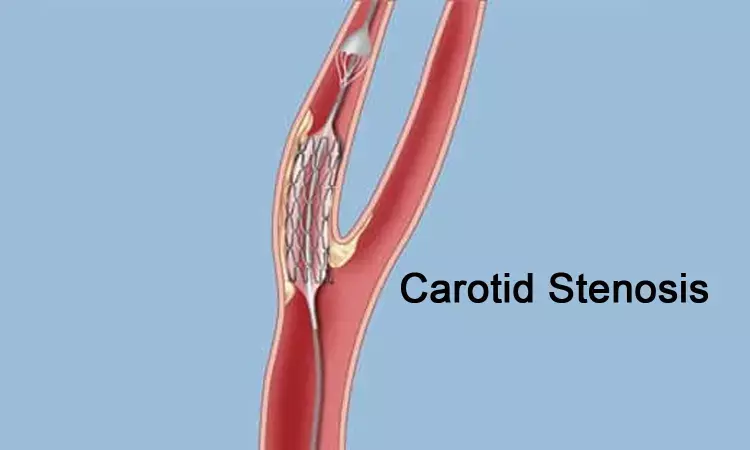- Home
- Medical news & Guidelines
- Anesthesiology
- Cardiology and CTVS
- Critical Care
- Dentistry
- Dermatology
- Diabetes and Endocrinology
- ENT
- Gastroenterology
- Medicine
- Nephrology
- Neurology
- Obstretics-Gynaecology
- Oncology
- Ophthalmology
- Orthopaedics
- Pediatrics-Neonatology
- Psychiatry
- Pulmonology
- Radiology
- Surgery
- Urology
- Laboratory Medicine
- Diet
- Nursing
- Paramedical
- Physiotherapy
- Health news
- Fact Check
- Bone Health Fact Check
- Brain Health Fact Check
- Cancer Related Fact Check
- Child Care Fact Check
- Dental and oral health fact check
- Diabetes and metabolic health fact check
- Diet and Nutrition Fact Check
- Eye and ENT Care Fact Check
- Fitness fact check
- Gut health fact check
- Heart health fact check
- Kidney health fact check
- Medical education fact check
- Men's health fact check
- Respiratory fact check
- Skin and hair care fact check
- Vaccine and Immunization fact check
- Women's health fact check
- AYUSH
- State News
- Andaman and Nicobar Islands
- Andhra Pradesh
- Arunachal Pradesh
- Assam
- Bihar
- Chandigarh
- Chattisgarh
- Dadra and Nagar Haveli
- Daman and Diu
- Delhi
- Goa
- Gujarat
- Haryana
- Himachal Pradesh
- Jammu & Kashmir
- Jharkhand
- Karnataka
- Kerala
- Ladakh
- Lakshadweep
- Madhya Pradesh
- Maharashtra
- Manipur
- Meghalaya
- Mizoram
- Nagaland
- Odisha
- Puducherry
- Punjab
- Rajasthan
- Sikkim
- Tamil Nadu
- Telangana
- Tripura
- Uttar Pradesh
- Uttrakhand
- West Bengal
- Medical Education
- Industry
Intraplaque hemorrhage in carotid stenosis doubles risk of recurrent stroke or TIA: Study

Netherlands: In patients with mild-to-moderate carotid stenosis, carotid intraplaque hemorrhage (IPH) and total plaque volume increase the risk of transient ischemic attack or recurrent ipsilateral ischemic stroke, says a study published in JACC: Cardiovascular Imaging. These plaque characteristics boost current decision-making.the
Symptomatic carotid stenosis patients are at high recurrent stroke risk. Currently, the decision for carotid endarterectomy mainly relies on the degree of stenosis (cutoff value >50% or 70%). Mild-to-moderate stenosis patients still have a considerable risk of recurrent stroke. Increasing evidence has indicated that plaque vulnerability is determined by carotid plaque composition rather than the degree of stenosis. However, it is unclear whether this also provides additional information for improving clinical decision-making.
Against the above background, Dianne H.K.van Dam-Nolen, Department of Neurology, Erasmus University Medical Center Rotterdam, Rotterdam, the Netherlands, and colleagues conducted the PARISK (Plaque At RISK) study to improve the identification of patients who are at increased recurrent ischemic stroke risk using multimodality carotid imaging.
A total of 244 patients with recent symptomatic mild-to-moderate carotid stenosis were included in a prospective multicenter cohort study. At baseline and after two years, magnetic resonance imaging (brain and carotid) and computed tomography angiography (carotid) were performed. The clinical endpoint was a transient ischemic attack (TIA) or a recurrent ipsilateral ischemic stroke.
The researchers assessed whether intraplaque hemorrhage, the proportion of calcifications, ulceration, and total plaque volume in ipsilateral carotid plaques were associated with the endpoint using Cox proportional hazards models. The authors also examined the predictive performance of these biomarkers by the separate and simultaneous addition of these markers to the ECST (European Carotid Surgery Trial) risk score.
The study led to the following findings:
- Thirty-seven patients reached the clinical endpoint during 5.1 years of follow-up.
- IPH presence and total plaque volume were associated with recurrent ipsilateral ischemic stroke or TIA (HR: 2.12 for IPH; HR: 1.07 for total plaque volume per 100 µL increase).
- Ulcerations and the proportion of calcifications were not statistically significant determinants.
- Adding IPH and total plaque volume to the ECST risk score improved the model performance.
"The PARISK study showed that both IPH presence and total plaque volume in patients with a symptomatic carotid plaque causing mild-to-moderate stenosis are independent determinants for the risk of TIA or a recurrent ipsilateral ischemic stroke," the researchers wrote in their study. "Moreover, these imaging-derived markers improve risk prediction of stroke recurrence."
"Validation studies are needed to implement plaque characteristics in clinical scoring tools."
Reference:
van Dam-Nolen DHK, Truijman MTB, van der Kolk AG, Liem MI, Schreuder FHBM, Boersma E, Daemen MJAP, Mess WH, van Oostenbrugge RJ, van der Steen AFW, Bos D, Koudstaal PJ, Nederkoorn PJ, Hendrikse J, van der Lugt A, Kooi ME; PARISK Study Group. Carotid Plaque Characteristics Predict Recurrent Ischemic Stroke and TIA: The PARISK (Plaque At RISK) Study. JACC Cardiovasc Imaging. 2022 Oct;15(10):1715-1726. doi: 10.1016/j.jcmg.2022.04.003. Epub 2022 Jun 15. PMID: 36202450.
Dr Kamal Kant Kohli-MBBS, DTCD- a chest specialist with more than 30 years of practice and a flair for writing clinical articles, Dr Kamal Kant Kohli joined Medical Dialogues as a Chief Editor of Medical News. Besides writing articles, as an editor, he proofreads and verifies all the medical content published on Medical Dialogues including those coming from journals, studies,medical conferences,guidelines etc. Email: drkohli@medicaldialogues.in. Contact no. 011-43720751


